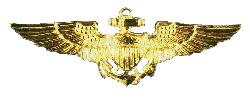
Lt. Colonel Harold W. Bauer
![]()

The following is a letter from Capt. Joe Foss to the family of Harold Bauer describing his last flight:
On November 14, 1942, we had heavy enemy action up the line from Guadalcanal. All day we bombed, torpedoed, and strafed their ships by air. Late in the afternoon we had several of their troop transports dead in the water. About four o'clock I received orders to take my flight and escort the dive bombers to that area, and if enemy air activity permitted I was to strafe the transports. Just before I took off, Colonel Joe told me that he was going along and see just how my boys worked. He said I wasn't going to get all the fun alone, so we all took off. Upon arriving there, we found several troop transports dead in the water and smoking. Some warships were cruising among them to pick up survivors and ward off air attacks. Tom Furlow and I followed the colonel and circled high above. The three of us circled for some time and watched our planes attack and start to leave. All the surrounding air seemed clear from enemy air activity. So we came down and strafed the ships below. We came right out on the water and headed for home.
All of a sudden, tracers shot over my head. Upon looking back, I saw two Jap Zeros diving on us, shooting. At once, Joe turned and headed straight for one. Both he and the Jap were shooting everything. Then - Bang! And the Zero blew up, and Joe zoomed and made a turn for home. Tom and I chased the other Zero toward Tokyo but couldn't catch him. Upon returning to the scene of Joe's action (twelve or fifteen miles due north of the Russell Islands), I was unable to spot him. I saw an oil slick about a mile south of the spot where the Zero had gone in, and upon circling it saw Joe swimming with his life vest on. I went right down to within a few feet of him, and he waved both arms and jumped up out of the water. Then he waved me toward home. He was in good shape - no visible cuts. I tried to give him my life raft, but it wouldn't come out, so I gave full throttle toward home. I landed and took off at once in a Duck (a Grumman J2F amphibian bi-plane) with Major Joe Renner. We were within ten miles of Joe and it got pitch black, so we had to return home. At daybreak the next morning (Nov. 15) we were on the site of the colonel's landing with my flight of eight and the Duck. The only thing in sight were two Jap planes, which we shot down at once. We searched and searched the area but no sign of a soul. ... So in my way of thinking, one of the following two things happened - either the Japs happened upon him and took him prisoner or the sharks got him. If the Japs have him, he is safe, in my mind, as he wore his lieutenant colonel's silver oak leaves.
The above is as complete as the action really was.
To me, Marine Corps' Aviation greatest loss in this war is that of Joe. He really had a way all his own of getting a tough job done efficiently and speedily, and was admired by all, from the lowest private to the highest general. I am certain that wherever Joe is today, he is doing things the best way - the Bauer way.
I am hoping that someday Joe will come back - I'll never lose hope, knowing Joe as I did.
No trace of Lt. Col. Harold Bauer was ever found. He was posthumously awarded the Medal of Honor.
Medal of Honor Rank and organization: Lieutenant Colonel, U.S. Marine Corps. Born: 20 November 1908. Woodruff, Kans. Appointed from: Nebraska. Citation: For extraordinary heroism and conspicuous courage as Squadron Commander of Marine Fighting Squadron 212 in the South Pacific Area during the period 10 May to 14 November 1942. Volunteering to pilot a fighter plane in defense of our positions on Guadalcanal, Lt. Col. Bauer participated in 2 air battles against enemy bombers and fighters outnumbering our force more than 2 to 1, boldly engaged the enemy and destroyed 1 Japanese bomber in the engagement of 28 September and shot down 4 enemy fighter planes in flames on 3 October, leaving a fifth smoking badly. After successfully leading 26 planes on an over-water ferry flight of more than 600 miles on 16 October, Lt. Col. Bauer, while circling to land, sighted a squadron of enemy planes attacking the U.S.S. McFarland. Undaunted by the formidable opposition and with valor above and beyond the call of duty, he engaged the entire squadron and, although alone and his fuel supply nearly exhausted, fought his plane so brilliantly that 4 of the Japanese planes were destroyed before he was forced down by lack of fuel. His intrepid fighting spirit and distinctive ability as a leader and an airman, exemplified in his splendid record of combat achievement, were vital factors in the successful operations in the South Pacific Area. |